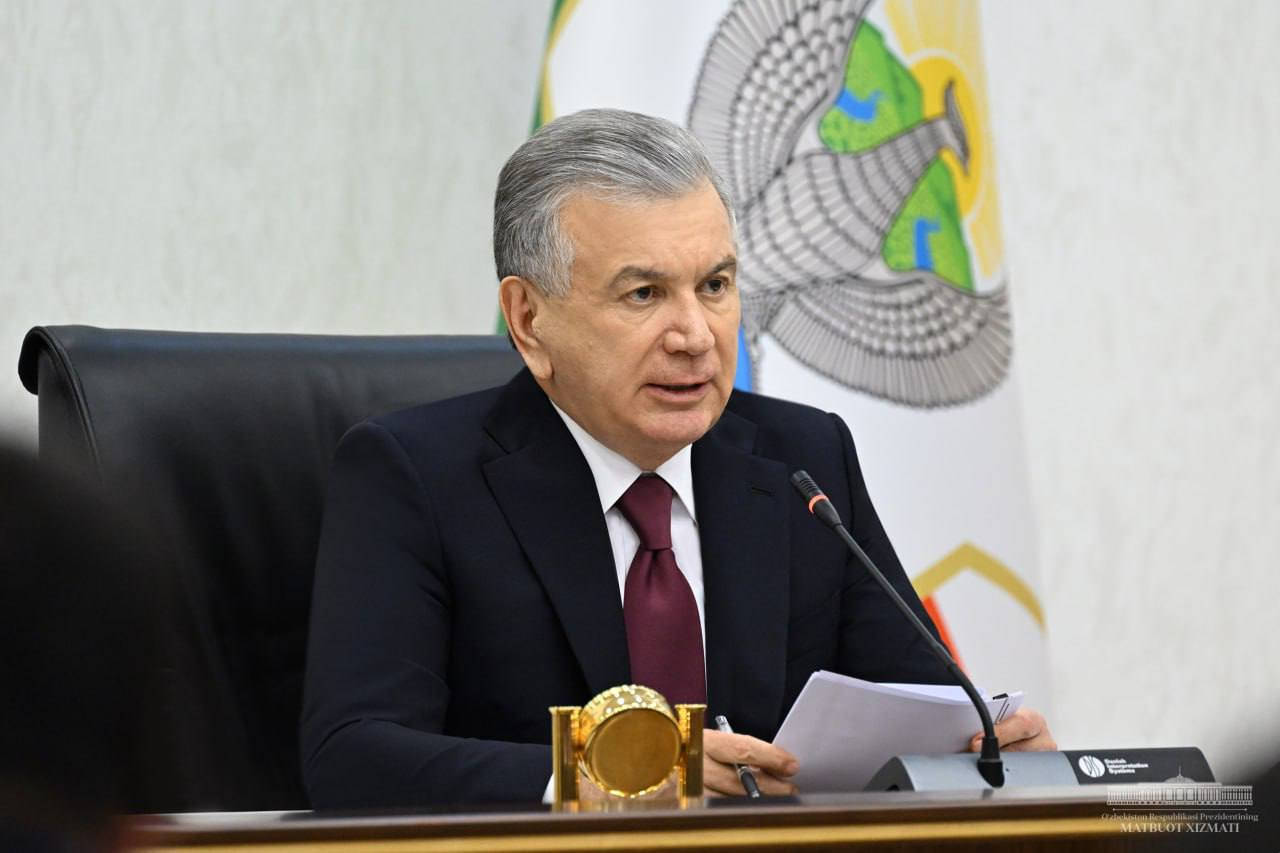
Measures for the development of agricultural sectors were discussed. Under the chairmanship of President Shavkat Mirziyoyev, a video conference meeting was held on November 9 on improving the activities of cotton-textile clusters, supporting and increasing the productivity of agricultural sectors.
The impact of the deteriorating situation and trade restrictions in the world is also felt in the domestic economy. In particular, these factors had a negative impact on food and textile exports. In this situation, the most correct way is to reduce costs by increasing agricultural productivity, increasing investments in deep processing and creating added value, and increasing exports.
In this regard, measures to support agriculture with new approaches, organizational and financial assistance were discussed at the meeting. The head of our state touched upon each industry separately and presented new proposals and initiatives.
According to the analysis, this year in 41 cotton-textile clusters the harvest exceeded 40 quintals, and in 9 - less than 30 quintals. In Jizzakh, Kashkadarya, Namangan, Samarkand and Tashkent regions, due to low productivity and high costs, profitability did not exceed 10-11 percent.
There are also positive experiences. For example, in the Navbahor cluster in the Navoi region, a new foreign cotton variety produces on average more than 70 centners of yield per hectare, the cost of which is almost two times lower than in the Jizzakh region.
New approaches to the production of cotton seeds are similarly indicated. Thus, in one of the districts of each region with a low quality score, insufficient access to water and a yield of less than 30 centers, the import of cotton seeds with a yield of more than 70-80 centners will be allowed. Planting of varieties with a yield of less than 30 centners will also be stopped and replaced with new high-yielding varieties developed by seed institutes.
Another pressing issue in the field is the violation of the discipline of mutual settlements between some clusters and farmers. 122 clusters have debts to the Agriculture Fund and farmers. 6 clusters were provided with preferential loans, although they do not have production facilities.
Based on this, a decision was made to introduce a new system for organizing clusters and organizing their interaction with farmers.
From now on, newly created clusters will be required to have sufficient financial indicators, production capacity and equipment; they will be selected on the basis of an open competition. They will have to have at least a two-step processing.
Farmers will be able to enter into futures contracts with any cluster within the same region. They will also be able to sell a portion of the crop above the futures through the exchange.
Also, preferential loans in the form of a 60 percent advance for growing cotton for next year’s harvest will be allocated directly to farmers.
Clusters will be financed through the purchase of grown cotton and the provision of funds for harvesting. Separate funds will be allocated for deep processing.
Responsible persons have been instructed to establish a new procedure for financing clusters and farms, and to settle receivables and payables between them. The need to transfer clusters to international financial standards was noted.
With this year's cotton harvest fully processed in 2024, industrial output is estimated to reach $9.6 billion and exports to $4.5 billion.
In particular, projects have been launched to organize the production and dyeing of fabrics worth $350 million in the Yukorichirchik district of the Tashkent region, the production of artificial threads, fabrics and their dyeing for $60 million in Karakalpakstan. These enterprises will be launched next year and transferred to entrepreneurs on industrial mortgage terms. They will create the opportunity to export products worth $1.5 billion.
In order to support the development of this industry, the President of the Republic of Uzbekistan signed a decree according to which a new system will be created to support textile, dyeing and clothing production. In particular:
- enterprises that sell at least 50 percent of dyed fabrics to the domestic market pay social tax at a rate of 1 percent;
- they are allowed to pay property tax in installments for 3 years;
- until January 1, 2025, 50 percent of transport costs for the import of cotton and artificial fiber will be compensated;
- technological equipment and spare parts imported by textile and sewing and knitting enterprises are exempt from customs duties.
The President emphasized the importance of using these opportunities to increase the number of projects, covering half of infrastructure costs.
It was noted that 16 thousand hectares of orchards and 10 thousand hectares of vineyards have low productivity. This means that they lose at least 3-5 thousand dollars per hectare, an average of 100 million dollars per hectare.